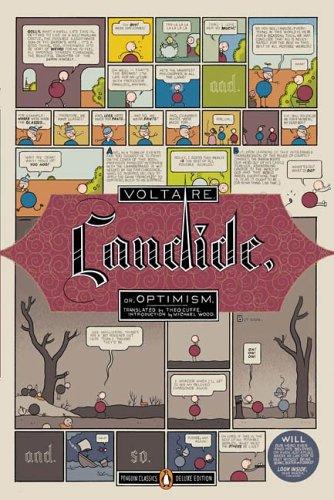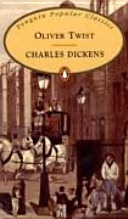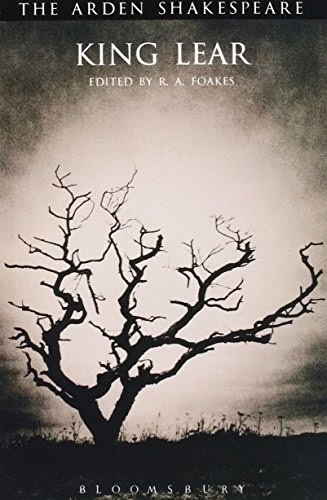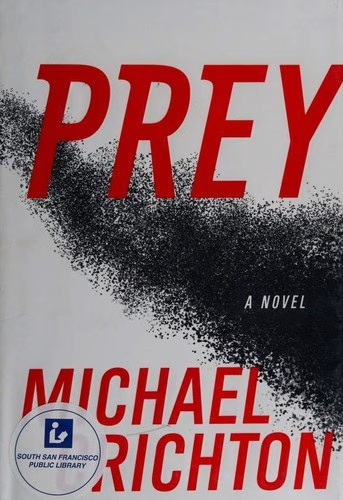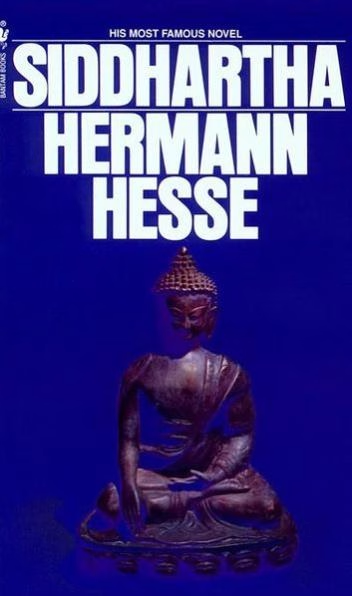Plot Summary
The Expulsion from Westphalia
In the German province of Westphalia, at the castle of the Baron of Thunder-ten-Tronckh, lives a gentle and naive young man named Candide. Believed to be the illegitimate son of the Baron’s sister, he is raised alongside the Baron’s beautiful daughter, Cunegonde, and her boorish brother. The household’s tutor is the great philosopher, Doctor Pangloss, a staunch believer in Optimism, a doctrine which he summarizes as: “all is for the best in this best of all possible worlds.” He teaches that everything in existence has a perfect purpose. Candide, an impressionable student, innocently accepts this philosophy.
His simple world is shattered when, after a flirtatious science lesson from Pangloss is observed, Cunegonde initiates a kiss with Candide behind a screen. The Baron discovers them and, in a fit of rage, violently expels Candide from the castle—his “terrestrial paradise”—kicking him out into the cold world.
Horrors of War and a Great Catastrophe
Alone and destitute, Candide is forcibly conscripted into the army of the Bulgarians. He is subjected to brutal military discipline and narrowly escapes execution for taking a walk. Soon after, the Bulgarians go to war with the Abares. Candide witnesses the horrific, indiscriminate slaughter of war, where thousands are butchered and entire villages are burned to the ground. He deserts and flees to Holland, a supposedly charitable Christian country.
There, he is met with scorn until a kind Anabaptist named James takes him in. One day, Candide encounters a beggar ravaged by syphilis, who is revealed to be none other than his old master, Pangloss. Pangloss recounts a horrifying tale: the Bulgarians had stormed the Baron’s castle, murdering the Baron, his wife, and their son. Cunegonde, he reports, was brutally raped and disemboweled, and is now dead. Pangloss himself contracted his disease from Paquette, the Baroness’s chambermaid. Despite his wretched state, Pangloss still insists that all these private misfortunes contribute to the greater, universal good. The benevolent James pays for Pangloss’s cure (which costs him an eye and an ear) and takes both philosophers with him on a business voyage to Lisbon.
The Inquisition and a Miraculous Discovery
As their ship approaches Lisbon, a violent tempest strikes. The kind Anabaptist, James, is drowned while trying to save a sailor. The ship sinks, and only Candide, Pangloss, and the selfish sailor survive, washing ashore on a plank. Immediately upon their arrival, a catastrophic earthquake devastates Lisbon, killing thirty thousand people. As they help the wounded, Pangloss attempts to philosophically console the victims, arguing that the disaster was a necessity in the best of all worlds. His reasoning attracts the attention of an agent of the Inquisition.
To prevent further earthquakes, the authorities decide to hold an auto-da-fé—a public ritual of penance and execution. Pangloss is arrested for his heretical opinions, and Candide for listening with an air of approval. Pangloss is hanged, and Candide is stripped and publicly whipped. Beaten and bewildered, Candide is rescued by a mysterious old woman. She tends to his wounds and leads him to a secluded house, where he is stunned to find Cunegonde, alive.
Cunegonde recounts her story: she was indeed raped and stabbed by a Bulgarian soldier but survived. She was later sold and became the shared mistress of a Jewish merchant, Don Issachar, and the Grand Inquisitor of Lisbon. It was the Grand Inquisitor who sentenced Pangloss and Candide.
Flight to the New World
Their reunion is cut short when Don Issachar arrives to claim his night with Cunegonde. Enraged, he attacks Candide, who kills him with a sword. Moments later, the Grand Inquisitor arrives. Seeing his rival dead and Candide armed, he is about to call for help when Candide, acting swiftly, kills him as well. On the advice of the old woman, the three flee on Andalusian horses, taking Cunegonde’s jewels with them. They travel to Cadiz, where Candide, drawing on his experience with the Bulgarians, is made a captain in an army sailing to Paraguay to subdue a Jesuit rebellion. Candide, Cunegonde, and the old woman embark for the New World.
During the voyage, the old woman tells her own story, a litany of horrors that surpasses all others: she was born the daughter of a Pope, was captured by pirates, witnessed her mother’s dismemberment, was sold into slavery across North Africa, and even had one of her buttocks cut off and eaten by starving Janissaries during a siege. Her story is meant to prove that everyone has suffered, and she challenges the others to find a single person on board who does not consider themselves the unhappiest of mortals.
Misfortunes in South America
Upon arriving in Buenos Ayres, the Governor, a pompous nobleman, is captivated by Cunegonde’s beauty and proposes marriage. At that moment, a ship arrives from Spain, pursuing the murderer of the Grand Inquisitor. The old woman advises Cunegonde to accept the Governor’s offer for protection and urges Candide to flee. Heartbroken, Candide escapes with his new, highly capable valet, Cacambo.
They travel to the Jesuit kingdom in Paraguay. There, Candide is shocked to discover that the Jesuit Commandant is none other than Cunegonde’s brother, the young Baron, who also survived the castle massacre and was nursed back to health by a Jesuit priest. The reunion is joyous until Candide reveals his intention to marry Cunegonde. The Baron is outraged at the idea of his sister marrying a man of such low birth. When he strikes Candide with the flat of his sword, Candide impulsively runs him through with his own rapier, apparently killing his second priest.
El Dorado and the Return to the Corrupt World
Candide and Cacambo flee into the wilderness. They rescue two naked girls from a pair of monkeys, only to learn the monkeys were the girls’ lovers. They are then captured by a native tribe, the Oreillons, who prepare to eat them, believing Candide to be a Jesuit. Cacambo, who speaks their language, persuades them that Candide has just killed a Jesuit, proving it by showing them the Baron’s Jesuit habit. The Oreillons celebrate Candide as a hero and release them.
Their journey continues until they reach the legendary land of El Dorado, a utopian kingdom isolated from the world by impassable mountains. Here, gold and jewels are common pebbles, used by children for games. The society is rational, peaceful, and devout, worshipping a single God without need for priests or religious conflict. Candide and Cacambo are treated as honored guests by the benevolent king. Although they live in perfect happiness for a month, Candide’s desire to find Cunegonde and their longing to be rich in their own world compel them to leave. The king grants their wish, providing them with an ingenious machine to lift them over the mountains and giving them one hundred red sheep laden with priceless treasures.
The journey back is brutal. They lose most of their sheep and treasure to swamps, deserts, and thieves. In Surinam, a Dutch colony, they witness the horrific plight of a sugar slave, mutilated for minor infractions. This sight causes Candide to finally renounce Pangloss’s optimism. He is then swindled out of his remaining fortune by a Dutch skipper, who sails away with his last two treasure-laden sheep.
A Companion in Misery and the Old World
Despairing, Candide offers to pay for the passage of the most miserable man he can find to accompany him to Europe. He chooses Martin, a poor scholar and a Manichean, who believes the world is a battleground between good and evil, with evil almost always winning. During their voyage, they debate philosophy. Their ship witnesses a naval battle where the thieving Dutch skipper’s vessel is sunk. By a stroke of luck, one of Candide’s red sheep, laden with jewels, is recovered from the wreckage.
They land in France and travel to Paris, which they find to be a sink of corruption, cynicism, and social climbing. Candide is cheated at cards, swindled by an abbé, and seduced by a marchioness who steals his diamond rings. He and Martin are arrested on false charges but buy their freedom with diamonds. Fleeing France, they briefly stop in Portsmouth, England, just in time to witness the execution of Admiral Byng for not being aggressive enough in battle, a spectacle that further confirms Martin’s grim view of humanity.
The Final Search and Conclusion
They finally arrive in Venice during Carnival. Candide finds no sign of Cunegonde. He re-encounters Paquette, now a miserable prostitute, and her companion, a disillusioned friar. He gives them money, but Martin predicts it will only make them more unhappy. They visit the wealthy Senator Pococurante, who is jaded and finds no pleasure in his vast collection of art, music, and literature. The absurdity of the world is highlighted when Candide dines with six dethroned kings, all passing the Carnival in Venice.
Cacambo reappears, now a slave. He reveals that Cunegonde is also a slave in Constantinople and has become hideously ugly. Undeterred, Candide pays for Cacambo’s freedom and they set out. On a Turkish galley, Candide finds both Pangloss and Cunegonde’s brother rowing as slaves. He is stunned to learn they both survived their apparent deaths. He pays a fortune to ransom them all.
Finally, on the shores of the Propontis, Candide finds Cunegonde. She is indeed withered and ugly, but he honors his promise and buys her freedom, along with the old woman’s. The young Baron, however, remains as arrogant as ever and again refuses to allow the marriage. Fed up, Candide has him sent back to the galleys.
Candide buys a small farm where the entire group—Candide, Cunegonde, Pangloss, Martin, Cacambo, and the old woman—settles. They are miserable, bored, and spend their days in endless, fruitless philosophical debate. One day, they consult a famous Dervish, who slams the door in their faces for asking foolish metaphysical questions. Soon after, they meet an old Turkish farmer who lives a simple, peaceful life, ignorant of the political turmoil in the capital. He explains that he and his family find contentment in their work, which keeps them from the “three great evils—weariness, vice, and want.”
Inspired, the small group decides to stop philosophizing and start working. Each finds a useful task. Pangloss tries to rationalize their entire journey as leading to this perfect outcome, but Candide cuts him off with the novel’s famous last line: “All that is very well, but let us cultivate our garden.”
Characters
Candide
The protagonist of the story, his name suggesting innocence and simplicity. He begins as a naive young man in Westphalia, completely indoctrinated by his tutor Pangloss’s philosophy of Optimism. His journey is a brutal and relentless education in the realities of a world filled with suffering, cruelty, and absurdity. Tossed from one disaster to another, he is forced to confront war, natural disasters, religious fanaticism, and human greed. Candide’s character arc is one of gradual disillusionment. He evolves from a passive victim of fate into a man who rejects abstract philosophical systems in favor of a practical, modest solution to life’s chaos.
Pangloss
Candide’s tutor and a grotesque parody of Enlightenment philosophers like Gottfried Wilhelm Leibniz. Pangloss is a dogmatic optimist who believes that “all is for the best in this best of all possible worlds.” He clings to this belief with absurd tenacity, rationalizing every horror he experiences—syphilis, hanging, dissection, enslavement—as a necessary part of a perfect universal plan. He represents the folly of philosophical systems that are divorced from empirical reality, preferring complex, illogical justifications over the clear evidence of suffering.
Cunegonde
The object of Candide’s undying love and the initial catalyst for his adventures. Initially depicted as a beautiful, innocent, and desirable noblewoman, she is subjected to a horrific series of traumas, including rape, servitude, and the loss of her family. Her experiences transform her, and by the end of the story, she is ugly, worn-out, and has a shrewish temperament. Cunegonde’s physical and emotional decay serves as a powerful symbol of the story’s central theme of disillusionment, showing how the world corrupts and destroys innocence and beauty.
Martin
A poor Manichean scholar whom Candide hires as a traveling companion in Surinam. Martin is the philosophical foil to Pangloss. He is a staunch pessimist who believes the world is dominated by evil and that humanity is inherently corrupt. Having seen and suffered a great deal, Martin is cynical and expects the worst in every situation. While his worldview is bleak, his predictions are consistently proven right by the events of the story, making him a voice of harsh, empirical reason against Pangloss’s blind faith.
The Old Woman
A character defined by her almost comically tragic life story. Claiming to be the daughter of a Pope and a princess, she has endured unimaginable suffering: enslavement, rape, war, and even cannibalism (having a buttock cut off to feed soldiers). Despite this, she is fiercely pragmatic, resilient, and cynical. She offers Candide practical, worldly advice, serving as a testament to human endurance in the face of relentless misfortune.
Cacambo
Candide’s loyal and highly resourceful valet, whom he acquires in the Americas. Cacambo is a man of action and immense practical knowledge, starkly contrasting with the inept philosophers. Whether navigating the wilderness, translating for cannibals, or arranging escapes, he is unfailingly competent and devoted to Candide. He represents a natural intelligence and goodness that is unburdened by the convoluted and useless philosophical systems of his European counterparts.
Core Themes
The Critique of Philosophical Optimism
This is the central satirical target of the novel. Voltaire relentlessly attacks the Leibnizian philosophy, espoused by Pangloss, that the world is the “best of all possible worlds” created by a benevolent God. The narrative is a long, brutal refutation of this idea, piling one senseless tragedy upon another—war, rape, plague, earthquake, religious persecution—to demonstrate that such a philosophy is not only naive but also an insulting and dangerous denial of the reality of human suffering.
The Problem of Evil and Suffering
Candide is a profound exploration of the existence of evil. Voltaire presents a catalogue of both human-made evils (war, greed, cruelty, slavery) and natural evils (earthquakes, storms, disease). The sheer randomness and scale of the suffering endured by the characters raise fundamental questions about the nature of God, justice, and humanity’s place in the universe. The novel offers no simple answers, ultimately suggesting that evil is an inescapable part of the world that cannot be explained away by philosophy.
The Hypocrisy of Religion and Power
Throughout his journey, Candide encounters figures of authority who are corrupt, cruel, and hypocritical.
* Religion: The Catholic Church is portrayed with particular scorn. The Grand Inquisitor is a lecherous tyrant who orders an auto-da-fé to prevent earthquakes, burns “heretics” alive, and keeps a mistress. A Franciscan friar steals Cunegonde’s jewels, and a Jesuit Baron is a proud, violent slave-owner. Religious institutions, far from being sources of comfort or morality, are depicted as primary agents of intolerance, persecution, and suffering.
* Power: Secular rulers and nobles fare no better. The Baron of Thunder-ten-Tronckh is an arrogant fool, the Governor of Buenos Ayres is a predatory autocrat, and the dinner with six dethroned kings in Venice underscores the fickle and transient nature of power.
The Value of Practical Work over Abstract Philosophy
After journeying across the world and wrestling with complex philosophical questions, the novel’s final resolution is strikingly simple and pragmatic. The conclusion, “we must cultivate our garden,” represents a definitive rejection of grand, abstract systems like those of Pangloss and Martin. It suggests that meaning, contentment, and a tolerable life are not found in metaphysical debate but in tangible, productive labor. Work provides purpose, distracts from existential despair, and fosters a small community, offering the only true antidote to the “three great evils—weariness, vice, and want.”
Plot devices
Satire and Parody
Candide is a masterpiece of satire. Voltaire uses biting wit, irony, and exaggeration to mock philosophical optimism, religious hypocrisy, and the arrogance of the European aristocracy. The entire narrative is also a parody of the popular adventure-romance genre of the 18th century. By taking the conventions of these stories—shipwrecks, pirates, long-lost lovers, exotic travels, and miraculous reunions—and pushing them to absurd extremes, Voltaire highlights the foolishness and unreality of both the genre and the optimistic worldview it often embodied.
Picaresque Novel Structure
The novel follows the structure of a picaresque, a genre that details the episodic adventures of a wandering, often naive protagonist who moves through various social strata. Candide’s journey from Westphalia to South America, El Dorado, Paris, and Constantinople allows Voltaire to create a panoramic critique of the entire world. Each new location and set of characters provides a fresh opportunity to expose a different form of human folly, corruption, or cruelty.
Irony
Irony is Voltaire’s primary tool. The central irony lies in the constant, jarring contrast between Pangloss’s optimistic pronouncements and the horrific events that immediately contradict them. For example, Pangloss explains that syphilis is for the best because it brought Europe chocolate, just as he himself is dying from it. The title itself, Candide, or Optimism, is deeply ironic, as the story is a relentless assault on the philosophy it names. This use of irony creates the book’s signature tone of dark, detached humor.
Deus ex Machina and Extreme Coincidence
The plot is propelled by a relentless series of improbable events, sudden reversals of fortune, and miraculous survivals. Characters who are brutally killed, hanged, or disemboweled reappear chapters later with flimsy explanations. This is not lazy writing but a deliberate narrative device. It parodies the contrived plots of adventure stories while simultaneously emphasizing the chaotic, unpredictable, and absurd nature of existence. The world of Candide does not follow logical rules of cause and effect, making any philosophical system that claims to explain it inherently ridiculous.

